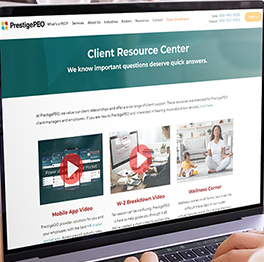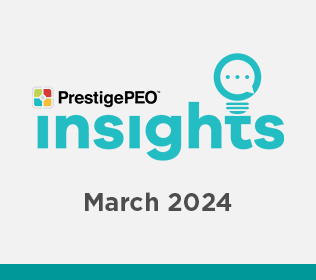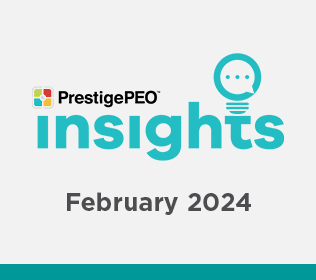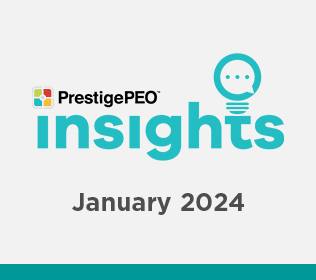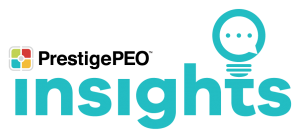
The latest news relevant to you and your business
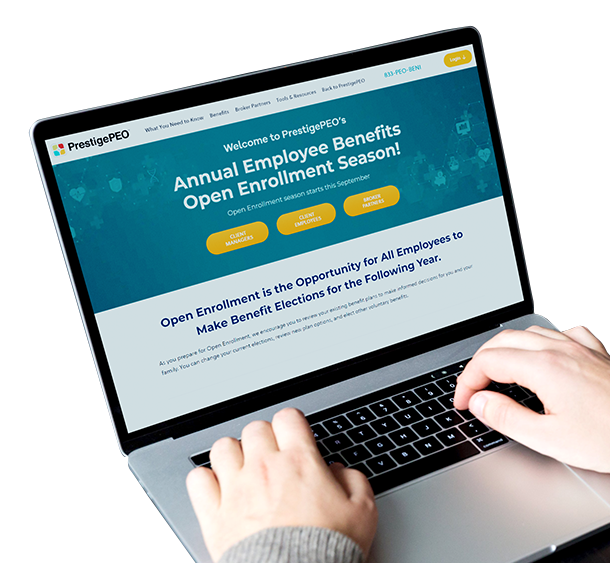
Open Enrollment Season is here
We have been working on some helpful improvements to the PrestigePEO Renewal Portal for this year and are excited to share them with you. You’ll be able to easily compare insurance plans and see costs to add additional employee benefits. We’ve added the ability to download potential contribution models, which is ideal when you want to manipulate for different scenarios and easily share these examples before submitting.
To prepare you for what’s to come, our Open Enrollment Resource Center is now live! There, you will get a full download on employee benefits, voluntary plans that are brand new for this year, and a ton of helpful information that will smoothly transition you into 2023’s Open Enrollment season. Check out the site today!
BENEFITS
Open Enrollment Webinars!
Throughout the next few weeks, you will receive invitations to webinars related to Open Enrollment. The first one up is with our Aflac representative, discussing the brand-new group product programs debuting this year. Aflac insurance plans make a great complement to your current medical coverage. This webinar will take place tomorrow, Wednesday, August 16th, 2023 at 10:00 a.m.
On Wednesday, August 23rd, 2023 at 10:00 a.m., we will host our second webinar of the season that will help you navigate your PrestigePEO Renewal Portal. Kathleen Sullivan, our Director of Benefits, will take us through the new features and updates this year and answer any questions. You’ll learn how to make your selections, create comparison models to export, and share with your teams before making final decisions. As a bonus, John Manning, our MassMutual representative will join us to review the opportunity to sign up for Whole Life Insurance during Open Enrollment Season this year.
Register today for either (or both!) of these informative webinars! Click the button to access the registration pages for the webinars.
Below is a quick rundown of all the new voluntary benefits we will offer this year during Open Enrollment. Detailed descriptions and further information can be found on your Open Enrollment Resource Center.
MetLife Aura Identity & Fraud Protection
PrestigePEO is happy to offer MetLife Aura Identity & Fraud Protection to get ahead of online threats. The services provided in this program help stop fraud before it happens. This program is comparable to Lifelock but focuses heavily on prevention.
MetLife Pet Insurance
After you’ve selected your insurance plans this Open Enrollment season, don’t forget about your furry loved ones! With MetLife Pet Insurance, your next vet visit doesn’t have to be stressful. This offering will replace Nationwide Pet Insurance for new subscribers, and it will be a direct bill to you.
MetLife Vision with the Davis Vision network
We understand that out-of-pocket costs can be expensive for items related to vision care. With MetLife Vision, through the Davis Vision network, we can help save you money and motivate you to prioritize your eyes! This is the second vision option offered by PrestigePEO in addition to UnitedHealthcare Vision Insurance.
Aflac Group Accident, Critical Illness, Hospital Indemnity and Short-Term Disability
While PrestigePEO always offered Aflac Personal Insurance plans to clients, this Open Enrollment season, we will be introducing Aflac Group Plans. The biggest perk of utilizing Group Plans is the competitive pricing which makes their monthly costs more than affordable. Available options are; Group Accident Insurance, Group Critical Illness Insurance (which now includes Cancer coverage), Group Hospital Indemnity Insurance, and Short-Term Disability Insurance.
*Note* Aflac Group Plans will replace Aflac Personal Insurance Plans. Subscribers who are currently on a Personal Insurance Plan can choose to keep their current plan or move to a Group Plan. Please note, these plans do not replace medical insurance. You must have medical coverage to enroll.
Cobra Vendor Transition
We want to let you know we are transitioning to a new Cobra vendor, Benefit Resources Inc. (BRI). This change will be effective as of September 1, 2023. Transition letters have gone out to all pending and active participants to notify them of the change. There is no further action you need to take at this time.
2022 EEO-1 Component 1 Data Collection is Due Fall 2023
The 2022 EEO-1 Component 1 Data Report is due this upcoming Fall of 2023. Although the portal is not open yet, PrestigePEO is preparing for this deadline. In the upcoming weeks, the HR Business Partners will be reaching out to clients that are required to file the EEO-1 Report to provide further guidance.
The Supreme Court has adopted a new standard for denying religious accommodation requests.
In a recent ruling (Groff v. DeJoy) the Supreme Court has made it more difficult for employers to deny employee religious accommodation requests.
Title VII of the Civil Rights Act of 1964 (Title VII) protects against religious discrimination in the workplace, and it requires employers to accommodate employees’ sincerely held religious beliefs unless the reasonable accommodation poses an undue hardship on the business.
In Groff, a Christian mail carrier requested an accommodation to not work on Sundays due to his religious beliefs; the employer, U.S. Postal Service (USPS), denied the request. This employee worked for USPS for years with no issue until a third party entered into an agreement with USPS to help facilitate package deliveries on Sundays. USPS showed that it tried to find other employees to cover his shift, but because there was a shortage of carriers in the area, granting the employee’s request would have caused an undue hardship on the business.
In this case, the Supreme Court questioned the meaning of “undue hardship”. Historically, this meant that the accommodation would need to cause more than a “de minimus” cost or more than a trifling cost to the business for the employer to deny the accommodation. In the new ruling, the Supreme Court rejected this historical standard for undue hardship and stated that “undue hardship is shown when a burden is substantial in the overall context of an employer’s business.”
This decision shows that businesses now must meet a significantly higher standard when demonstrating undue hardship. The case has been remanded to the lower courts, leaving them to decide the practical application of this new standard.
What should employers do if they receive a religious accommodation request?
If an employer receives a religious accommodation request from an employee, the employer should assess all possible avenues available to best accommodate the employee. Some examples of accommodations for employee religious beliefs include schedule changes, voluntary shift swaps, flexible work breaks, job reassignments, and modifications of workplace policies and procedures. If complying with a request would cause a staff shortage, it may be necessary to hire an additional employee. Unless accommodating the request would cause a substantial burden on the overall business the employer should accommodate the employee. Please note that religious accommodations requests must still be considered whether it stems from an employee’s mainstream or non-mainstream religious beliefs.
PrestigePEO is here to help.
If you have questions regarding an employee’s requested religious accommodation, please reach out to your HR Business Partner.
Texas Bans Racial Hair Discrimination in the Workplace, Effective September 1, 2023
Texas recently passed the Create a Respectful and Open World for Natural Hair (CROWN) Act, making it unlawful to racially discriminate based on hair texture and hairstyles in schools, employment, and housing. Enforcement begins on September 1, 2023. It will be unlawful to adopt or enforce a dress or grooming policy that discriminates against an employee’s hairstyle or hair texture that is commonly associated with race. Employers, labor unions, and employment agencies must comply and ensure their handbooks and policies comply with this law.
In passing its CROWN law statewide, Texas has joined numerous other states that have already implemented a CROWN law of their own. These additional states include Alaska, California, Colorado, Connecticut, Delaware, Illinois, Louisiana, Maine, Massachusetts, Minnesota, Maryland, Minnesota, Nebraska, Nevada, New Jersey, New Mexico, New York, Oregon, Tennessee, Virginia, and Washington.
Other states that are taking steps to pass legislation on racial hair discrimination include Michigan, Pennsylvania, New Hampshire, North Carolina, Rhode Island, South Carolina, and Wisconsin.
PrestigePEO is here to help.
If you have questions about complying with anti-discrimination laws or suspect that there may be discriminatory practices in your business, please contact your HR Business Partner.
Minnesota Law Amendment on Lactation Breaks and Pregnancy Accommodations
Lawmakers in Minnesota passed amendments to the Nursing Mothers, Lactating Employees, and Pregnancy Accommodations law which became effective July 1, 2023. These changes affect how employers may navigate pregnancy and childbirth-related accommodation requests, including but not limited to lactation breaks.
Lactation Breaks
As of July 2023, employers cannot deny reasonable break time for employee lactation breaks, even if allowing such breaks unduly disrupts operations; this is a significant change in the law, as before this amendment, employers were permitted to deny lactation breaks if it would unduly disrupt business operations. Now, employers must provide lactation breaks, regardless of the effect on the business.
Lactation breaks may run concurrently with break times that are usually provided. However, employers may not decrease an employee’s pay for the time spent on lactation breaks. The lactation space must also be a “clean, private, and secure” room. The lactation space provided cannot be a toilet or bathroom stall; it must include access to an electrical outlet. The amendment further lengthens the amount of time employers may allow employees for lactation breaks after the birth of a child from 12 months post-birth to no time limit.
Employers may not retaliate or discriminate against employees for asserting their rights or remedies under this law.
Pregnancy Accommodations
As of July 2023, employers with one (1) or more employees must provide employees with reasonable accommodations for health conditions related to pregnancy or childbirth upon the employee’s request. The law recognizes a difference between types of accommodation requests that must be accompanied by either the advice of a health care professional or certified doula and those that do not.
Reasonable employee accommodation requests that an employee generally does need the advice of either a healthcare professional or doula are frequent or longer restroom, food, and water breaks; seating; and/or lifting over 20 pounds. For these types of accommodation requests, the employer may not claim undue hardship as the basis to deny such accommodation requests.
Reasonable accommodation requests that go beyond the above-stated types of accommodation requests must be in accordance with the advice of a healthcare professional or certified doula and may require the employee to provide a doctor’s note or other similar documentation. Generally, unless the accommodation would cause an undue hardship on business operations, the employer should grant the employee’s reasonable accommodation request.
The amendment also extends the scope of possible reasonable accommodations. Such accommodations include, but are not limited to, “temporary transfer to a less strenuous or hazardous position, temporary leave of absence, modification in work schedule or job assignments, seating, more frequent or longer break periods, and limits to heavy lifting.” Additionally, before the amendment, this law only applied to employers with 15 or more employees.
Employers may not require an employee to take a leave or accept an accommodation if it is not what the employee has requested as a reasonable accommodation. Also, employers may not retaliate or discriminate against an employee for asserting their rights or seeking remedies under this law. However, employers are not required to create an additional position, discharge an employee, transfer another employee of higher seniority, or promote an employee to comply with an accommodation request.
Notice Requirement for Lactation Breaks & Pregnancy Accommodations: Employers must inform employees of their rights “at the time of hire” and “when an employee makes an inquiry about or requests parental leave.” An employer that provides an employee handbook must include a notice of employee rights and remedies under this law.
PrestigePEO is here to help.
If you have any questions on navigating reasonable accommodation requests, the needs of mothers and expectant mothers in the workplace, and/or are concerned about discriminatory practices, please contact your HR Business Partner.
Minnesota’s Amendment to the Wage Disclosure Protection Law
As of July 2023, Minnesota’s Wage Disclosure Protection law amendment is in effect. This law forbids employers from prohibiting employees to disclose their pay. Employers must not take adverse action or retaliate against an employee if the employee discusses their own wage or another employee’s wage, so long as the other employee’s wage has been disclosed voluntarily.
Due to the amendment, the law now prohibits more specific employer retaliatory actions. Prohibited types of retaliation under the newly amended law include discharging, disciplining, penalizing, interfering with, threatening, restraining, coercing, or otherwise retaliating or discriminating against an employee for asserting their rights or seeking remedies.
PrestigePEO is here to help.
If you have questions regarding employee wage disclosure protections, please contact your HR Business Partner.
Minnesota’s New Limitations to Cannabis Testing at Work
Effective Aug 1, 2023, Minnesota will provide employees and job applicants with protections for recreational cannabis use outside the workplace. This new law amends Minnesota’s Drug and Alcohol Testing in the Workplace Act (DATWA) and Minnesota’s Consumable Products Act (CPA).
Restriction on Taking Adverse Action for Off-Duty Cannabis Use
The new law makes it unlawful for employers to take action against employees or job candidates (such as withdrawing a job application, discharging, disciplining, etc.) because of their cannabis use outside of the workplace, during non-working hours.
However, employers may still discipline or discharge an employee for cannabis use, possession, impairment, or transfer occurring during working hours, on the worksite, or while operating employer vehicles/equipment. Employers may also prohibit cannabis use if failure to do so would violate state or federal law, regulations, or would cause the employer to lose benefits under federal law or regulations.
Cannabis Testing Restrictions
As a general rule, Minnesota employers cannot require or request a pre-employment cannabis test, refuse to hire someone solely for testing positive for cannabis on a pre-employment test, or require cannabis testing on an arbitrary or capricious basis. There are exceptions to this rule: employers may test for cannabis depending on the employee’s job position or the reason behind the test. A more thorough list of exceptions are as follows:
Testing Due to Job Position
Employers may treat cannabis like any other drug. Employers may test job applicants for cannabis if the employee or job applicant is in any of the following positions:
(1) safety sensitive position (a job in which impairment from drugs, alcohol, or cannabis could threaten the health and safety of anyone)
(2) peace office
(3) firefighter
(4) position requiring face-to-face care, training, education, supervision, counseling, consultation, or medical assistance to certain populations
(5) position requiring a commercial driver’s license or the operation of a motor vehicle
(6) position funded by a federal grant
(7) any other position that would require testing of an employee or job applicant under state or federal law
Random Drug Testing, Including Cannabis Testing
Employers may randomly require employees to undergo cannabis testing or drug and alcohol testing if the employee is:
(1) in a safety-sensitive position; or
(2) employed as professional athletes subject to a collective bargaining agreement that permits random testing.
Reasonable Suspicion Testing
Employers may require employees to undergo a drug and alcohol test, including cannabis testing, if they reasonably suspect that the employee:
(1) is under the influence of drugs, alcohol, or cannabis;
(2) has violated the employer’s written rules that prohibit the use, possession, sale, or transfer of drugs or alcohol or cannabis products at work;
(3) has been injured or caused the injury of another employee; or
(4) caused a work-related accident.
Drug and Testing Policy
The DATWA has always required employers to have a drug and testing policy. With the law changes, employers must now consider amending their policy to expand on the circumstances in which they will test for cannabis. Employers may also include any policies on consequences related to use, possession, or cannabis impairment at work.
PrestigePEO is here to help.
If you have questions regarding cannabis employment testing, please reach out to your HR Business Partner.
Georgia’s Recent Legal Developments: Employee Non-Solicitation Agreements, Voting Leave Law, and Sick Leave Law
Employee Non-Solicitation Agreements in Georgia Must Have Territorial Limitations
In June 2023, the Georgia Court of Appeals held that employee non-solicitation provisions must have territorial limitations to be enforceable. An employee non-solicitation provision is a contract tool employers may use to prevent former employees from recruiting current employees. This recent decision demonstrates the state’s trend towards a more limited non-solicitation agreement for existing and future restrictive covenants.
To ensure your existing employee non-solicitation provisions are enforceable, you may need to amend the agreement to include a territorial limitation. The territorial limitation may state the geographical area the solicitation restriction applies to.
Also, under Georgia law, the definition of employees includes independent contractors. Therefore, make sure that your non-solicitation agreements with independent contractors are compliant with this court decision.
Employee Voting Leave Law was Amended to Include Advance Voting
In July 2023, Georgia amended its voting leave law. The law requires all employers to provide employees with up to two (2) hours of unpaid time off, on either election day or on a designated early voting day, to vote in primaries and other elections. This differs from the previous version of the law that did not allow for early voting.
To qualify for unpaid voting leave, employees must be qualified to vote in the election and be registered to vote on the day the primaries or other elections are held. Employees should provide reasonable notice if they plan to use their voting leave and if employees do not provide reasonable notice, employers can refuse the employee’s request. Also, employers can specify the hours employees may take off.
Georgia’s Employee Sick Leave Law to Care for Family Members Is Here to Stay
As of July 2023, Georgia’s former temporary Family Care Act (FCA) is permanent. Since 2017, this law has required employers who offer paid sick leave to allow employees use of up to five (5) paid sick days to care for immediate family members. Now that the law is permanent, employers must continue to provide this benefit.
PrestigePEO is here to help.
If you have questions regarding employee non-solicitation agreements, employee voting leave, and/or sick leave, please contact your HR Business Partner.
Amendment to the New York State’s Pay Transparency Law is Effective September 17, 2023
New York passed an amendment to the New York State Pay Transparency law that will be effective September 17, 2023. The pay transparency law requires employers, when advertising a position, to disclose the compensation or compensation range and job description (if a description exists) of a job, promotion, or transfer opportunity. The amendment has broadened the scope of job positions it covers; it applies to positions that “will be physically performed, at least in part in” New York State, and to positions that “will be physically performed outside of New York, but report to” a supervisor or office based out of the State of New York.
As part of the amendment, employers are no longer required to maintain records of the compensation ranges or job descriptions for each job position. However, it may be helpful to keep records in case employers need to defend compensation decisions. This amendment further defines “advertise” within the context of the law: “to make available to a pool of potential applicants for internal or public viewing, including electronically, a written description of an employment opportunity.” This definition of “advertise” will apply to both external and internal opportunities.
This law does not supersede or preempt local laws or regulations.
PrestigePEO is here to help.
If you have questions regarding New York’s Pay Transparency law or wage and hour laws, please contact your HR Business Partner.
What the Supreme Court’s Affirmative Action Decision Means for Employers
Considering the Supreme Court’s recent affirmative action decision, employers must understand the risk this decision brings to the workplace.
On June 29th, 2023, in the case of Students for Fair Admissions, Inc v. President and Fellows of Harvard College, the Supreme Court ruled that it is unconstitutional for universities and colleges to consider race as part of student evaluations during the admissions process. The issue was raised by an advocacy group that argued that affirmative action policies discriminate against applicants. While this case specifically dealt with facts related to higher education admissions, the Court’s decision may not be limited to colleges and universities. It may negatively impact businesses, for example, concerning their Diversity, Equity, and Inclusion (DEI) programs.
Shortly after the Supreme Court’s decision, a chairman of the Equal Employment Opportunities Commission (EEOC) stated that the Court’s decision did not change Title VII of the Civil Rights Act of 1964. She noted that this law has always prohibited employers from using race to make employment decisions. In her statement, she also included that employers should review their diversity programs to ensure their initiatives are not violating the law. In other words, employers can use DEI programs, but they must be careful not to make race-based employment decisions.
What can employers do to carry out their DEI efforts legally?
Employers may see challenges against DEI programs. The Court’s reasoning may be used to show that these workplace policies are discriminatory under Title VII, as some may claim that these practices constitute reverse discrimination. To remain compliant with the law, employers should review their DEI program initiatives to ensure they do not include making employment decisions based on a protected class, such as race, color, religion, sex, and/or national origin. DEI policies should not have quotas, preferences, or perceived unfairness. Also, businesses should review any DEI communications to ensure it reflects the business’s commitment to inclusion for everyone. In addition, ensure that your leaders make decisions based on legitimate business reasons, not protected characteristics.
PrestigePEO is here to help.
If you have questions about DEI initiatives and how to implement them legally, please contact your HR Business Partner.
California Employers Are Not Liable If an Employee’s Family Member Contracts COVID-19
In July 2023, the California Supreme Court ruled that employers cannot be held liable by their employee’s household member if the employee contracted COVID-19 in the workplace and infected the household member.
In the case of Kuciemba v. Victory Woodworks, Inc., the worker’s wife contracted COVID-19 from her husband after the husband was infected at the job site. Kuciemba claimed that the employer was negligent by not preventing the spread of COVID-19.
The Court found the employer was not negligent and ruled that employers do not owe a duty of care to an employee’s household member to prevent them from contracting COVID-19. While this decision marks a win for employers, employers must continue to track COVID-19 legal developments as the laws may continue to change in the future.
PrestigePEO is here to help.
If you have questions regarding COVID-19-related workplace policies or general workplace safety guidelines, please contact your HR Business Partner.
What is Employment Practice Liability Insurance (EPLI)?
Employment Practices Liability Insurance: What it is and What You Need to Know About It.
Employment Practices Liability Insurance (EPLI) covers businesses against claims by job applicants, employees, and former employees alleging that the company has violated their legal rights. EPLI is an essential protection for businesses operating in an increasingly litigious society. EPLI generally covers claims of discrimination, harassment, retaliation, and wrongful termination. It generally does not cover wage and hour claims or claims from third parties, like independent contractors.
EPLI claims can come in a few different forms:
- Demand Letter: Letter from a claimant or their counsel demanding a sum of money or other relief for alleged violation(s) of employment law(s);
- Charge/Complaint of Discrimination: Claims filed with the EEOC or state or local agencies alleging violations of EEO laws; and
- Lawsuit: Formal Complaint filed in state or federal court outlining specific violations of law and demanding monetary or other relief.
Client Expectations
If you are a client of PrestigePEO, your available EPLI coverage under our policy is outlined in your Client Service Agreement (CSA). Each PrestigePEO client plays a vital role in keeping claims and retention costs down. To that end, there are important steps you must take to protect your business:
- Prevent- Make sure you have consistent and legally compliant handbook policies and practices; proactively train your employees; and report allegations of harassment, discrimination, and retaliation to your Human Resources Business Partner (HRBP) so we can help guide you in resolving those issues.
- Report- Within two (2) days of receiving a claim, you must notify your Human Resources Business Partner (HRBP). The sooner we know of a claim, the sooner we can assist in its resolution and report it to the carrier. Please timely report the claim to avoid a denial of coverage.
- Cooperate- We are your trusted partner. If you receive a claim, we understand. It happens. We must address and resolve it as quickly and cost-effectively as possible.
EPLI Process
If you receive a claim, you must report it to your HRBP within two (2) business days so we can quickly remit it to our carrier for a coverage determination and help you resolve the issue. Once submitted, the carrier will review the claim to determine coverage under the policy. Once the determination is made, we will communicate next steps to you, including whether coverage counsel will be assigned.
From there, your company, PrestigePEO, and the carrier will work together to resolve the claim. We understand that an EPLI claim can be very stressful for business owners and their management teams. We have helped many clients through the EPLI claim process, and we will be here to help you if you ever receive a claim.
Contact Us
Have questions about PrestigePEO’s EPLI process? Please reach out to compliance@prestigepeo.com. Receive a claim? Please immediately send it to your HR Business Partner.
PRESTIGE PERSPECTIVE
Check out our Client Resource Center
Looking for something? It might be right at your fingertips. Our Client Resource Center is home to tons of useful information, from forms to benefits information, to FAQs, and more! Make sure you check it out!
Earn Up to $2,500 for Every New Client Referral
The best marketing is done when one happy client tells another about their experience. PrestigePEO is happy to reward our clients who spread the word about our services. Whenever you refer a fellow business owner, we will repay your kindness! We’ve made it very easy to make your referral, and we’ve given out thousands of dollars in referral payments to our gracious clients to date. It’s time for you to cash in.
Feedback
We’d love to hear from you. Whether you have an idea for a future newsletter, or if you’re interested in being a podcast guest, let us know! Additionally, if you’d like more information on our services or programs, we can certainly accommodate that as well. Email marketingteam@prestigepeo.com today!


